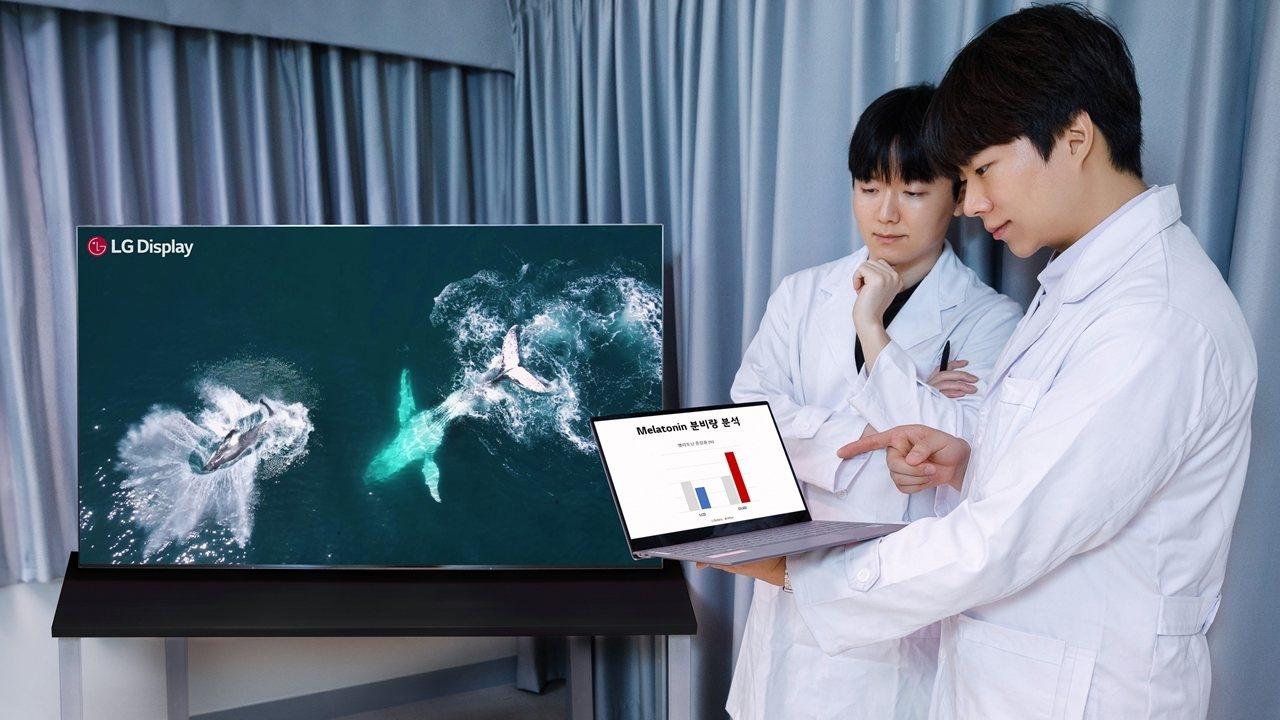LG Display, a globally leading innovator of display technologies, announced that its OLED TV panels have been confirmed to be excellent for helping viewers maintain healthy sleep patterns.
The company recently completed a clinical study to verify the impact of TV panels on sleep, in conjunction with researchers from Seoul’s Kookmin University. During the two-week study, they measured levels of the sleep-inducing hormone melatonin in 40 adult men and women divided into groups watching the same content on either LCD or OLED TVs.
OLED outperforms LCD
While the LCD TV group’s melatonin secretion fell 2.7% over two hours, it increased 8.1% in the OLED TV group. The human body needs melatonin to rise in the evening to prepare for sleep. However, blue light emitted from displays is known to disturb melatonin secretion, potentially leading to sleep disorders. In general, LCD panels emit 70-80% blue light due to their continuous reliance on a strong backlight, compared with just 36% blue light from LG Display’s self-emissive, and therefore backlight-less, OLED TV panels.
“In addition to minimising the negative impact on melatonin secretion during viewing time, OLED TVs have been shown to be effective in maintaining viewers’ healthy sleep patterns through greater activation of their parasympathetic nerves, which are responsible for feelings of comfort,” said Prof. Kim Chang-wook, who led the research team.
The results of the study confirm previous recognition of LG Display’s OLED panels as supportive of eye and body health, including being optimised to protect viewers’ circadian rhythms. Last year, the company’s OLED TV and monitor panels were the first in the industry to be certified as “Circadian Friendly” by TÜV Rheinland, a leading global independent testing, inspection and certification body.
Lowest level of blue light emissions
Moreover, with the lowest level of blue light emissions among all existing TV panels and absence of screen flicker, a phenomenon that can cause vision loss, the company’s OLED TV panels have earned the “Eyesafe” certification created by U.S.-based Eyesafe in association with TÜV Rheinland, along with “Flicker Free” and “Discomfort Glare Free” verifications from UL, a leading global safety science company.
“We will introduce products and technologies that can provide differentiated customer value based on OLED panels that are safe for the human body while offering the best image quality,” said Soo-young Yoon, CTO & Executive Vice President at LG Display.


